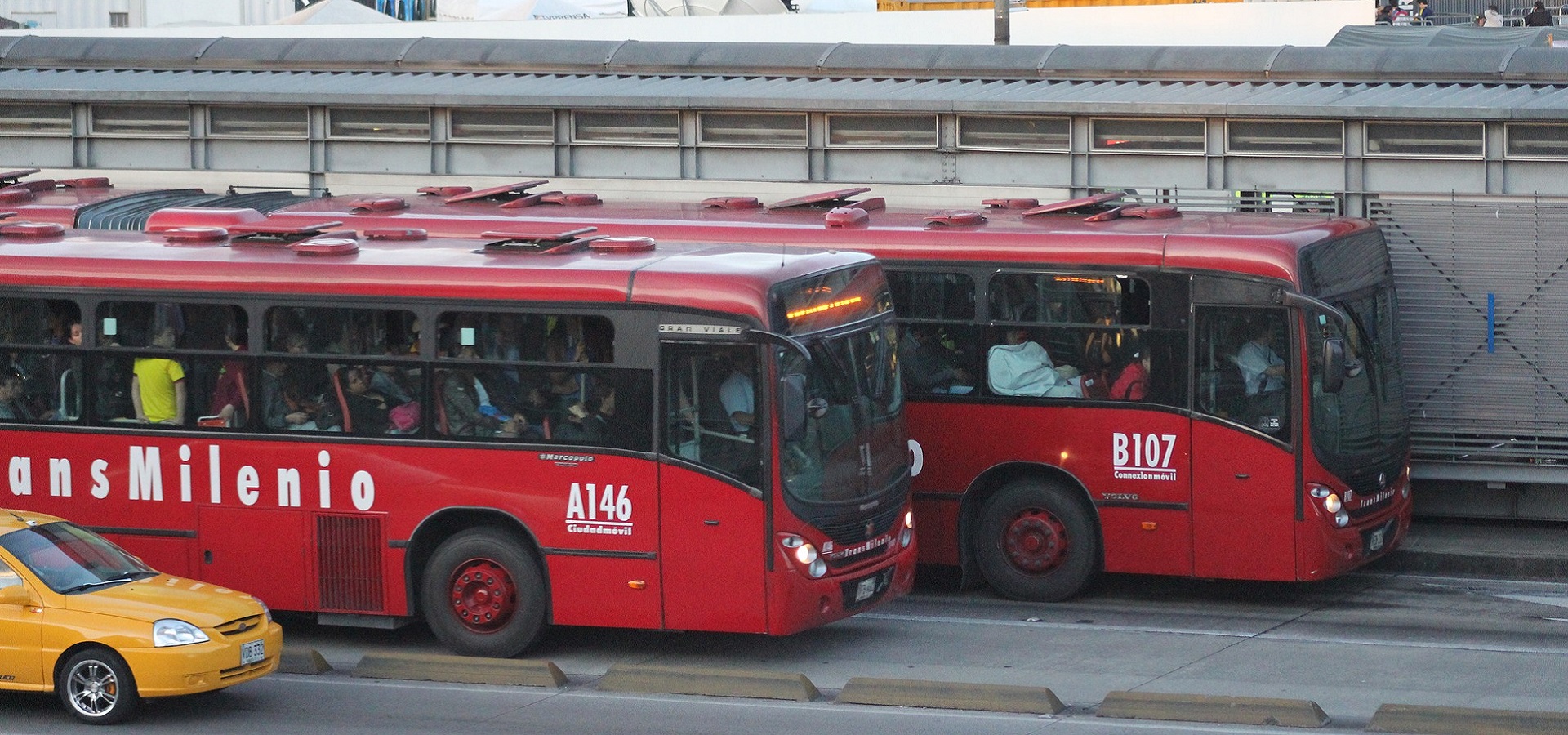For climate activists, the coronavirus pandemic has held some positive news with regards to its short term effects. As a result of the economic standstill in large parts of the world, global carbon emissions decreased by 20 percent by the end of March compared to the previous year. But as pressure is building up to get the economies going again, they must also fear that once this global health crisis has waned political and economic activity will return to business as usual, with the global climate agenda losing out against the urgency of rebuilding growth with the help of old industries. Rebecca Bertram takes a look at the possible sustainable future.

Public transportation in Bogota is overcrowded and social distancing not possible. (Public Domain)
Yet must this be a foregone conclusion? What if people and politicians, instead of going back to the bad old days do not forget the experiences made under the slow-down but translate them into new guidelines once this global crisis is behind us?
While these are early days, there is some ground for not giving up hope. Columbia’s capital city Bogota, home to around 7.7 million people of which 85 percent are commuting from home to work every workday could set one such example.
The city is famous for its traffic chaos which many claim to be among the worst in the world, responsible for one of the highest air pollution levels in Latin America. About 2000 premature deaths a year are due to air pollution here. And although Bogota is famous for its TransMilenio, the world largest rapid bus transit system that encompasses more than 120 kilometers of bus lanes across the city, the buses are vastly overcrowded. Not a place to practice social distancing when the coronavirus hit.
So when the pandemic reached Bogota at the beginning of March, the city’s progressive mayor Claudia López decreed that almost 120 kilometers of main roads in the city would be reserved for bike transport to discourage people from using the overcrowded public buses and to slow down infection rates. On the first bike day alone, public transport saw a 23 percent drop in customers.
Health experts claim that riding a bike does not only reduce the risk of infection by increasing the physical distance between commuters but also helps people with high blood pressure or diabetes. As such, biking during the pandemic’s spread can be seen as a preventative measure to both curb infection rates and reduce dangerous health predispositions.
Bogota’s initiative could build on a long-standing public policy of encouraging people to commute by bike. Already today the city holds more than 550 kilometers of bike lanes, so people and traffic are somewhat accustomed to the increase in the number of bikers. Every Sunday, for example, the city already shuts down major roads to allow bikers to take over large parts of the city.
It is a very popular mode of transport: numerous bike-rentals operate throughout the city and more than half of Bogota’s households own at least one bike. Yet with traffic jams and health-endangering fumes soaring during normal times, cycling in Bogota is still not as safe as it should be. The corona slowdown gave Bogota’s citizens now their best chance to bike freely and safely throughout their city.
Unfortunately, however, this bike-friendly policy did not last long. On March 20 – just after three weeks of being in place – Mayor Lopéz followed the example of most corona-struck countries by announcing a citywide lockdown prohibiting people from moving about the streets and stopping all non-essential commuting. Inevitably, this also killed all biking in Bogota.
Now however, there are expectations that the people of Bogota will soon be allowed to go out and take their streets back again. This could revitalize and expand the biking tradition, with bikers relishing the exhilarating sense of freedom when they took over the deserted streets of Bogota in early March.
They, for sure, will not want to go back to a pre-corona situation. And hope that the leaders of their city will not want to do either but instead translate the corona emergency measure into a permanent and sustainable feature of Bogota’s transport policy.